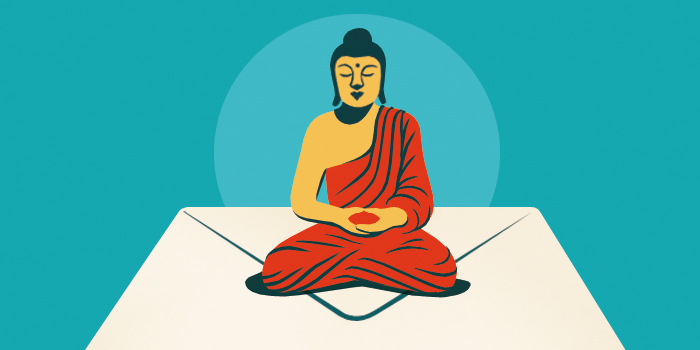The Second Precept: Abstain from Taking What Is Not Given
The second of the five precepts—Buddhist guidelines for an ethical life—is to refrain from taking what is not given, often simplified to not stealing.
This precept covers all the illegal behavior one would expect, such as burglary, shoplifting, fraud, and counterfeiting, as well as mundane activity like wearing a sibling’s clothes without asking permission. Contemporary Engaged Buddhist teachers sometimes take a more expansive view of the second precept that denounces acts such as purchasing products made by an exploited workforce or intentionally wasting another’s time or energy.
In the Theravada Buddhist tradition there are five factors that contribute to a violation of the second precept, including intent to steal, the act of theft itself, and the knowledge that the object belongs to someone else. There are also factors that affect the severity of a violation. Stealing from someone virtuous, for instance, is worse than stealing from a weapons trafficker. The value of the stolen item also matters; it’s more consequential to steal an asthma inhaler from a person whose health relies on it than to steal an expensive car from a person who owns several cars.
Abiding by the second precept also means not coercing or tricking someone into giving you something they otherwise wouldn’t give. Buddhist teacher Gil Fronsdal writes that this precept “precludes relying on ambiguity, deceit, force, exploitation, or intimidation to acquire what belongs to others.”
Across Buddhist traditions, the second precept is commonly practiced not only as an instruction to abstain from a negative action but also as an opportunity to cultivate positive mental states and behavior, specifically contentment and generosity. Contentment is an antidote to the perception of lack, which engenders the desire to steal. Generosity entails gifting money or belongings, giving one’s time or work, and providing others with opportunities to be generous themselves, such as granting permission when someone asks to use or borrow something. This aspect of practicing with the second precept ties in to the Buddhist path to enlightenment, which aims to lessen selfishness.

Tricycle is more than a magazine
Gain access to the best in sprititual film, our growing collection of e-books, and monthly talks, plus our 25-year archive
Subscribe now